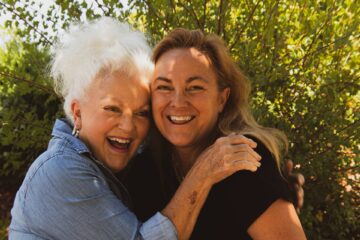In the context of family relationships, it is crucial to value and respect the individuality of each member, particularly when it comes to the elderly. As we age, maintaining autonomy and a sense of personal identity becomes increasingly important. Respecting the individuality of the elderly not only honors their life experiences and accumulated wisdom but also strengthens family bonds and contributes to their emotional well-being and quality of life.
By recognizing and honoring the preferences, opinions, and autonomy of the elderly, we create space for them to feel valued, respected, and heard. This is especially relevant in a society that often marginalizes and diminishes the voices of the elderly. By providing an atmosphere of respect and consideration, we establish a solid foundation for harmonious family relationships.
Respecting the individuality of the elderly not only means accepting their choices and opinions, but also actively involving them in decisions that affect their lives. Allowing them to make decisions, from simple day-to-day matters to more complex issues, strengthens their self-esteem and sense of control over their own lives. Moreover, by offering them opportunities to participate in family decisions, we promote an environment of collaboration and mutual respect.
Preserving their independence is essential when respecting the individuality of the elderly. Encouraging their autonomy and supporting their engagement in activities they are still capable of doing for themselves enhances their self-confidence and sense of purpose. This may include household tasks, hobbies, involvement in social groups, or any activity that brings them satisfaction and personal fulfillment. By offering support when needed but also respecting their abilities and limitations, we demonstrate our commitment to their well-being and dignity.
Respecting the individuality of the elderly is a path to harmonious and meaningful family relationships. In this blog post, we will provide practical tips to help you honor the individuality of the elderly in your daily interactions. By adopting these strategies, you will be building stronger bonds and fostering an environment of mutual respect, love, and understanding.
Active Listening: The foundation of respect lies in active listening. Dedicate time to genuinely listen to the elderly, asking open-ended questions, demonstrating empathy, and validating their opinions and experiences. This will strengthen trust and encourage the expression of their desires and needs.
Respect Personal Choices: Allow the elderly to make decisions regarding matters that concern their lives, from simple issues such as choosing their clothes to more significant decisions like planning activities or healthcare. Value their individual preferences and involve them in decisions that directly affect them.
Preserve Independence: Promote the autonomy of the elderly by encouraging them to engage in activities they are still capable of doing independently. This may include household chores, hobbies, or even participation in social groups. Be patient and offer assistance only when requested.
Avoid Infantilization: Treat the elderly as independent adults, avoiding speaking to them in a patronizing manner or making decisions for them without their active involvement. Respect their accumulated wisdom and their ability to think and act for themselves.
Encourage Family Involvement in Decision-Making: Include the elderly in family discussions and decision-making processes, allowing them to express their opinions and suggestions. This reinforces their sense of belonging and importance within the family dynamic.
Know Their Stories and Interests: Show genuine interest in the lives and stories of the elderly. Listen to their narratives, learn about their experiences, and discover their interests and hobbies. This will establish a deeper emotional connection and help you better understand them.
Respect Personal Boundaries: Each elderly individual has physical, emotional, and social limitations. Respect their boundaries and avoid pressuring them into activities or interactions that may make them uncomfortable. Be attentive to their needs for rest and privacy.
Conclusion:
Respecting the individuality of the elderly is an act of love and care that is essential for strengthening family bonds. By actively listening, respecting personal choices, preserving independence, involving them in family decisions, getting to know their stories and interests, and respecting personal boundaries, we contribute to a harmonious and rewarding family life. Remember that each elderly person is unique, with their own experiences and desires, and their individuality should be respected in every stage of life.










